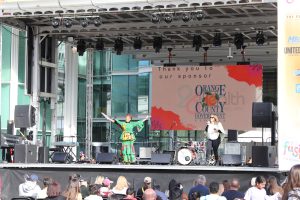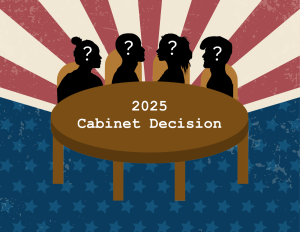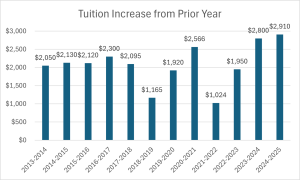
As countries recognize the generational impact of racism and slavery, Rollins has decided to join the conversation. This year’s Great Debate will discuss reparations, which is when a country compensates institutions that have been negatively impacted by slavery.
According to the New York Times, the University of Glasgow (UG) announced it would pay approximately $24 million in reparations to the University of the West Indies. UG decided this after it stated that it had historically gained approximately $200 million from the transatlantic slave trade.
The Great Debate teams will address the issue of reparations for slavery in its upcoming session between the Rollins College Debate Team, the Jamaican Association for Debating and Empowerment (JADE), and the Grove City College, Pennsylvania debaters. Each will assume either a negative, affirmative, or neutral position.
The Great Debate is part of an exchange program created by Dr. Eric Smaw, associate professor of philosophy and debate team faculty advisor, as a tool to foster global citizenship and appreciation for the democratic process.
The program involves more than 12 schools from over seven countries. The teams that attend each year’s Great Debate are picked based on the topic of the debate and which perspectives they could potentially bring to the table.
The teams engage in cultural activities throughout the week and debate at schools around the area.
“By having people from the international community come in, you get a fuller picture of a topic like reparations or #MeToo, and that itself is valuable because it gets into the minds of students that this is not solely an American issue,” said James Payne (‘20), captain of the Rollins College Debate Team.
“For a Rollins student in particular, what’s meaningful about bringing these different voices and perspectives together is that the students get to grapple with topics in a way they might not have thought of before,” said Payne.
The audience is encouraged to vocalize their thoughts during each debate. Boos and hearty cries of “hear, hear!” are accompanied by the rumble of fists pounding on desk-tops as the debaters race against the clock in efforts to win the approval of their listeners.
The subject of reparations has been a hot-button issue in the past two Democratic primary debates. According to The Washington Post, candidates such as Julián Castro, Kamala Harris, and Elizabeth Warren have expressed support of reparations for Black Americans in February. With the 2020 elections approaching, the pressure is on young voters to get involved in the democratic process.
“One of the roles of a college is to educate students for civic engagement in a democracy,” said Smaw. “One of the ways we do that is by debating ideas back and forth, letting the audience watch the debate, reflect upon the ideas, and then make a judgment about which way their community will go.”
Smaw hopes the debate will inspire conversation on campus and possibly foster change based on the outcome of the debate. He said in past years the Rollins community continued to ponder issues addressed in the debate long after it ended.
“After the debate, the students are still wrestling with the ideas, wrestling with the arguments, and they want to contribute too,” said Smaw. The Great Debate will take place on Wednesday, Sept. 25 at 7 p.m. in Tiedtke Concert Hall.














Be First to Comment